How To Conquer Your Fear and Anxiety
Are you a worrier - always anxious and fearful about the future? Today's Book-of-the-Day shares a lifetime of work from one of the top scientists in the world.
It talks about fancy concepts like, "Fear memories requiring protein synthesis in the lateral Amygdala for reconsolidation after
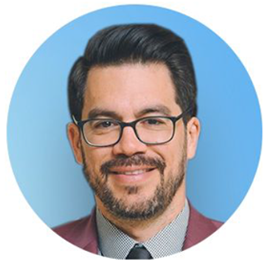
Tai Lopez
Sep 25, 2015
Transcription:
The question for most of us is how can we reduce anxiety, worry, and actually do stuff? Most everybody, at one point or another, has been paralyzed by fear. It's interesting for me. I've never been that fearful of a person but without a doubt as you live your life things don't always work out as well as you want. And so we build up these what neurobiologists, like the author of today's book of the day, Joseph Ledoux, they call this fear memories. They're stored in different parts of our brain like our amygdala and one of the big questions that's in this 300 or 400 page book, which I'm going to summarize for you right now, is there's something we can do about it?
And it's interesting, the book opens up by saying...because he's written another book called the Synaptic Self and he's one of the top professors on the biology of our brain, specifically in this book about things like anxiety, worry, fear. And I also for one of my companies I have a chief scientist PhD who's one of the top molecular neurobiologists in the world and I've talked to him at length about this subject. And the first thing I didn't know about the brain is nobody really understands it. Dr. Fresco, who work for me, says, "In some ways, outer space is more explored than the human brain, just how complicated it is."
So when you read a book like this obviously the author is not holding himself out as an absolute expert. There's general concepts that are very important for us to understand. For example there's a part of your brain, you can call it the amygdale it sits back here, and that part of your brain is a place that you store memories, especially fear memories. So one of the things the author opens up this book by saying is that we all have a certain temperament. And he talks about how his mother was a worrier and he says, "And while my own temperament lies somewhere between theirs. And when I feel the stress of daily life pulling me towards anxiety and worry...he tries to be a little bit more like his dad.
It's interesting, you ever heard that saying, 'Don't sweat the small stuff'? Well what he says here is, "People who are dispositionally anxious, see more things as stressful than less anxious people. For the more anxious, fewer experiences fall in the small stuff category." So you got to categorize yourself. This is classic Aristotle, Plato, know thyself. If you have a harder time putting little things in the small stuff category, then this book would say your dispositionally more likely to be what we call a chronic worrier. That's interesting because I realized I tend to be somebody, especially when I was really young, I never had a worry or fear.
You get a little bit older, you get burned a few times and you get maybe a little wiser. But he goes through ,what is the source of anxiety? And throughout history people have tried to analyze it, get rid of it. I'm sure if you've ever tried to start a business, quit your job, moved to a new place, a lot of people in relationships, you're in a relationship with somebody you know you shouldn't be in but you can't quite get out of it because you're afraid of being alone. I have a friend who told me...he's dating a girl. He doesn't like her but he can't stand the thought that some other dude is going to date her. So he's anxious about this. He's got these imaginary things which degrade the quality of his life. So as different philosophers throughout history have tried to analyze our worry.
One of them he talks about is Soren Kierkegaard, who was this philosopher who basically said that the reason we have worry, anxiety and fear is because this is the price of choice. We have unlimited choice in the world so we're always at some level fearful. He says, "A sense of dread over our freedom to choose." Kierkegaard said, "When Adam struggled between Eve's apple and God, worry began and remains a factor in every decision humans make." So at some level, you and I are stuck with some fear and worry because there's always the thought, "What if?" If I...Jeff Bezos, one of my favorite stories. He starts Amazon, right?
And he goes out and now we know in hindsight that it was a good decision. He ended up making $42 billion. But at that moment when he had a good job that he had to leave behind, he was freaked out, right? Why? That's what Soren Kierkegaard calls that anxiety of choice. So, Sigmund Freud then tried to conquer this thing and Freud said that all of our anxiety and our mental maladies have to do with the repression of things that happened to us in our childhood, and so on. It's interesting. I was just talking actually today briefly with Dr. David Buss. We were emailing back and forth and he's an evolutionary psychologist.
So he looks at fear completely different than Soren Kierkegaard or Sigmund Freud, and for him, fear is what's called adaptive. Not just for him but more modern scientists. Those scientists were back 1800s, early 1900s. So now we have this new understanding that fear is functional. What is functional mean? Functional means it serves a purpose. You wouldn't want to get rid of it all. I always remember this story. It's funny, I can remember almost like it's yesterday. I was five or six, and I know that because my grandfather died when I was about eight. So my grandpa...I had hit my leg. He was a scientist so I always thought I could ask him questions and I hit my leg on a chair and I said, "Why does my leg hurt?"
And my grandpa said, "Oh, Tai, it's because you have nerves." And I said, "Why can't you scientists just invent a pill that we take and all our nerves go away?" And he said, "Oh, you don't want that. That's what happens to people with leprosy. That's what happens to people who have, I think it's called neuropathy. Where you start losing feeling and when you do that, the next thing you know you start putting your hand on the stove and burning it and you end up way worse off than if you have temporary pain." So he said, "Pain is a signal."
And in the same way, Soren Kierkegaard saw fear as our anxiety of choice. Sigmund Freud saw it as all these convoluted repression of your mother and father and all that. But modern scientists, or at least quite a few of them, see at as a signaling. And if it is a signal, then you wouldn't want to get rid of it all because you would cut out the signals in your life. I think the issue though that people struggle with is what Joseph Ledoux says right here in the beginning is that dispositionally some people can't stop sweating the small stuff, literally. I have someone that I know their average worry...they're freaked out about any little thing. If they're five minutes late, they're baseline. They're up and totally amped and like, "Oh, my god. What am I going to do?"
And I'm, "Dude, who cares? What does five minutes matter in the day? Turn on an audio book in the car, flip it around." But I see that they very much, at every turn, can't make their brain do that. Now at the very end of the book the professor says something which I like. He says...and this is the hope, the light at the end of the tunnel that I got from reading this book. By the way, people ask me, "Why do these book of the days like this?" And it's simple. This is like my journal. The best way to learn is to talk about which you read. People always ask me, "Hey, Tai, how can I memorize stuff?" I'm like, "Well, flip on the old recorder and start talking."
And so that's why I do these. Some people get value, hopefully maybe you'll get a little value. But I get value from being better at remembering, especially a big subject like the tangled web of anxiety and fear. Here at the end, he says, "Change is difficult and for a variety of reasons it's more difficult for some people to change than others. But the brain is adaptable. It's just the matter of being able to make those changes happen. That's where the science of fear and anxiety can hopefully help. Just as the brain can learn to be anxious it can also learn to not be that way." And he says here, "A lot of fearful anxious people see trouble ahead and lead their lives dwelling on the worst case scenarios that often don't come to pass.
They believe that worrying gives them the power to execute plans that prevented the bad ideas from happening in the past." I mean that, to me, is the ultimate diagnosis of why the heck we have anxiety. It's because at some point it worked for us to be anxious and fearful and worry. It worked one time when you were seven years old. It worked when you were 15 years old. It worked when you were 50 years old. And then you become like what Charlie Monger says, you take on what he coins, "Rhe man with the hammer syndrome." Where basically you start using...and by the way, that saying goes, "If all you have is a hammer in your tool belt, every problem looks like a nail."
So imagine that. Emotionally, most people they use one tool all the time. For example, some people you're going to meet in life they're cynics. Everything they approach, it could be the most beautiful thing in the world, they're going to bring up their cynicism. Why? Because at some point being cynical kept them from some pain. And so they stored it away and that's what you store away in this brain. You have your medial pre-frontal cortex, you have your amygdala, you got all these hippocampus, and your brain stem and all these parts of your brain that I certainly don't understand. And even these top scientists don't fully understand, but we do know that we store this stuff.
So if it worked being a cynic, boom. You're always a cynic. You meet people who are always laughing about everything. I know somebody in the worst situation he'll make a joke and I'm thinking, "What's up with this dude?" You don't want to be laughing at a funeral, right? And I know why. At some point, he had pain or reward by laughing. Now he starts applying it at every single turn. And a good carpenter uses the right tool for the right situation. And so what I think this book is about and my takeaway is you have to have tools for the situation and situational awareness. And so as he goes through this book it's interesting. There's a lot of drugs out there.
There's a lot of crazy science. In fact they're working on this anti-anxiety where it's not just a drug that we've used in the traditional sense like anti-depression. But there's literally these annihilation drugs which annihilate. Let me see if I can find this. That annihilate fears that you might have built up over the past. And it's a very complicated ethical question. For example, if you could go into your brain, and other people's brains and erase all their trauma, the ethical question is do you change who they are as humans? Some of those traumas...and it's like Friedrich Nietzsche, the philosopher said, "What don't kill you makes you stronger."
So some of this stuff we've gone through literally has made it stronger. To eliminate it, brings up all these tough questions. Then they talked about things like exposure therapy where there's a Far Side comic I remember when it was a cartoon in a newspaper, and it showed a guy in an elevator falling from the skyscraper and snakes are all on top of him. And the caption of the cartoon was, "Bob decided to simultaneously cure his fear of heights, elevators, and snakes." So that's exposure therapy. We just throw everything at you for long enough.
And what this book talks about is it does work but there's limitations. I saw at the Amish, when I lived at the Amish when I was younger, that's how they would train horses. Because if you have a horse that you ride out on the main street where there's cars, if that horse is afraid, they call it shying. Let's say you're going this way on horseback and a 18-wheeler tractor trailer is coming, if that horse sways off one way or the other you'll fall into the ditch or get hit by the 18-wheeler. Some Amish would do this is to train their horses, they'll take a young colt out and they do this real humanely, they take the bridle and you tie it to a real sturdy thing like a telephone pole that's near a street where 18-wheelers go by. And you leave the horse there for a few hours everyday. Two hours bring it back to the barn, next day two hours.
And the first time of course that that 18-wheeler comes by, the horse jumps but it can't get away so it realizes, "Oh, that horse didn't get me." And then the next day you do it and after 30 days, that horse won't shy anymore. And so there are things that you and I have to do. There's good science that shows if you're afraid of public speaking, you should expose yourself and just go out and do public speaking maybe just for your family, with five people there and then build up to 10 people and 20 people. And there's a lot of people that have overcome fears, worries, and anxieties that way but there's limitations to that.
And they talk about the real technical ones in this book. There's limitations. For example, you can temporarily suppress fears. Because what happens is the fear is still in your amygdala. Let's say you got up and did some public speaking when you're young and everyone laughed at you. So you created a fear memory. Then you try to expose yourself to get rid of that fear. You never really get rid of the fear. You cannot mask it. They call that fear annihilation memories. You make new memories that are better. The problem is, occasionally, if you're under enough stress or trauma you might revert back to that old fear. So they've come up with these actual drugs that are experimental that literally are trying to go into the brain and wipe it out.
Not sure they're going to be able to pull it off anytime soon without a ton of side effects, but I'll tell you four practical things from this book. Chapter 11 says therapy, lessons from the laboratory. So the first thing, what I thought was interesting, with all this complicated stuff, non-associative learning, habituation, complex drugs, they're talking about Pavlovian responses. Some of the real practical things at the end of this book are layman's terms. Everyone can understand them. For example, it says here, "One of the best things you can learn to do is breathe." So it says, "When someone is stressed it's common to advise just take a deep breath."
And it says, "This folk wisdom has a grain of truth to it. During stress the sympathetic nervous system dominates overshadowing your parasympathetic system. The result is fast heart rate but low heart rate variability and shallow breathing. When you breathe slow, measured, almost practic....take a deep breath." It says, "What is commonly taught in meditation, yoga and relaxation training, the vagus nerve which controls the parasympathetic nervous system...I think it's vagus nerve because it sounds like Las Vegas. That's how I remember it, by the way. It says, "If you can stimulate that nerve, that one controls your parasympathetic nervous system which is what you want. You get a balance between the sympathetic."
And you don't want just all fight or flight, right? So I thought that was interesting. Just learning how to breathe, everybody can do this. Number two, he talks about making working...you have working memory, that's what you call upon. Selfless. And they put people on these FMRI machines, these functional MRIs. It's a magnetic...but it has oxygen. It says one of the things that they found is...a psychoanalyst, Mark Epstein, says, "Our conscious brain will do almost anything to maintain the independence, power, control and success that it has achieved even if to do so other people, other cultures or the world has to suffer.
A healthier approach," he says, "is to let go of your absolute self. The one that we construct and recognize a broader role in life." I had a friend, a man who tried to kill himself at one point or thinking about it, and all because of a relationship with a woman. And she was off dating other people and they had broken off the relationship but he still felt bad. I finally got the phone and said, "Bro, you know your problem, man?" And I'm not a psychoanalyst by any means, but I had used this on myself. I said, "Listen, you think you're the center of the universe, therefore you're surprised that she's off dating other guys."
I said, "You broke up, man. It was your idea." And he said from that moment, he was completely cured. Now I don't know if that always will work but I know it worked for him and that's because whatever happens to us, when we see ourselves as the absolute center of the universe, we take everything personally. There's that one book I like, the Four Agreements. The four things you have to agree to do to live a happier life or a better life and one of them is you can't take things personally. About 90% of the things that happen in life have nothing to do with you and I, the things that other people do. So that's kind of similar to what this book concludes.
Number three is this exposure therapy, right? So I mentioned this, if you're afraid of public speaking go do some public speaking. He says here in this book...where is this one? I thought this was fastened. So let's say you don't like large groups. Okay? Oh, yeah, here it is. It's called proactive avoidance. And so you have these anxiety triggers. So Michael Rogan, who is a researcher and a therapist who specializes in social anxiety. Let's say you have a hard time going up to people. You see a girl you like or somebody you like, you're at a party, you never speak up for yourself. Suggests that, "Rather than forcing yourself to ride out anxiety at a party."
So number three is you got to balance this thing of exposure therapy with proactive avoidance. These are seemingly opposites, so right. Exposure therapy is when you go and put yourself right into it. Proactive avoidance is where just that, you avoid whatever freaks you out. So what he's saying...here's the example of the balance. So number three, you go to this party. Okay? So that's exposure therapy. You normally don't like to do this. Now once you get there though, let's say you start to feel overwhelmed, what he says is...if I can find it.
I keep dropping this damn book. Okay, here we go. He suggests, "Rather than forcing yourself to ride out the anxiety at the party," he calls that flooding. When you get flooded with emotional triggers, so you're freaked out. He says, "It's more effective to use anxiety control strategies such as relaxation and active coping." So for example, take a trip to the bathroom or you can take a deep breath away from everybody or step outside, make a phone call, give yourself an excuse for getting out there. So you really got to balance that getting yourself into whatever scares you with some ability to retreat. I thought that was pretty bad ass. They call that, trumping extinction with proactive avoidance. They studied people in 9/11, and that's where they came up with this.
People who have been through, you know, New York, 9/11. Now one other thing that's awesome here, the fourth thing is resilience. So one of the best pieces of advice I saw here is that certain people are very resilient, so hang out with resilient people. Where did he say it? Let's see if I can find this part where he basically says, what happens is...so if you can get around a resilient person, it rubs off on you. He didn't say it exactly that way, but basically we learn things. So resilience is what I was talking about in the very beginning.
Some of us have natures that little stuff doesn't freak us out. So if you are an anxious and fearful person, what most people do is they find a lot of friends that are just like them. And then it becomes the blind leading the blind, or the freaked out leading the freaked out. So look for resiliency in people. And Dr. David Buss once told me the measure he uses is his baseline. Here's normal, if somebody shoots away from it very easily, they're not resilient. So if that's you then you got to get to people who stays cool under pressure. There's a saying in Spanish called tranquilo. It just means relax, chill out. You need a friend that's a little chilled out. Because like this book says in the very last page, "If we can learn to be freaked out we can also learn to learn to not be freaked out."
And it can't just be willpower. It's got to be a combination of this breathing, not seeing yourself as the center of the universe, practicing exposure, but also giving yourself a way out when it overwhelms you, and lastly change who you hang out with. I talk a lot about that. People ask me business advice. One of my most common replies...I get 3,000 to 5,000 emails a day now. I'm like, "It's the same. Change who you're around, that'll change your mind." The mind has neuroplasticity. It's all in this book. So check out this book, Anxious. So if you're somewhere where you can leave a comment.
A quick question for you. Of those four strategies, which one have you tried that worked the best that you can start using a little more often? Another thing, if you're liking this stuff make sure you subscribe. I'm going to start putting this out and I'm actually going to do a contest. So I'm going to start giving out a lot of investment stuff in other people, whether it be a new laptop, stuff like that. Not cheesy stuff but a lot of people ask me and I realized when I was first starting out, people invested in me, not always money but they invested time.
And occasionally I found somebody who invested material things. So make sure you subscribe. I'm going to be picking from subscribers pretty often now, a couple of times a week, every Friday and do once or twice a year do something big, give somebody a car. I don't know if it will be a Lamborghini.
But anyway, more important than all that, so click the button and subscribe wherever you subscribe and remember, anxiety and fear is something that not only must be mastered, but the news from modern science is that we can adjust and we can get some control over it. Because I tell you this, if you can't do the things or if you won't, there's serious repercussions to be somebody who always uses worry and fear as your only tool. To be in that state of pessimism it is to live life half-speed and you don't want to live life half-speed. There's all the clichés, life is short.
But more importantly than life being short, life is to be savored, that's how I think of it. And you can't savor a good meal if you're always freaked out like, "Am I going to drop the fork?" No, you won't be enjoying that plate of food and in the same way in life if all you're doing is literally being worried about the smallest of things or even larger things you are missing. What the great poet said, "You want to suck the marrow out of life. Get every ounce that you can." So think about it. Let me know your thoughts. Let me know what's worked for you. Leave a comment what's worked for you, what hasn't worked for you. Make sure you follow, subscribe here.
And one other thing, check out...I'm starting to post a lot of different things on different social networks. So if you don't follow me on Periscope, I'm just under Tai Lopez and I'm doing these live talks where you can ask me questions. I pop in once every other day on Periscope. It's a cool app. You can live stream. Instagram, I'm posting stuff, and Twitter. It's TaiLopez1 on Instagram and Tai Lopez on Twitter, also my Facebook. What else? I'm trying to pack a lot of stuff in here. Stay tuned for the other book of the day stuff. A lot of people have been asking me to do these longer book of the days. So I decided I'd sit here in a chair when I was all by myself up here in this penthouse studio and give a little talk on the book, Anxious by Joseph Ledoux. And I'll talk to you soon. All right.
COMMENTS
Best of Tailopez
-
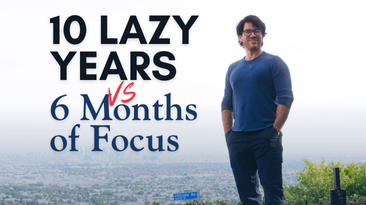 Ten Lazy Years Can Be Erased With Six Focused Months
Ten Lazy Years Can Be Erased With Six Focused Months -
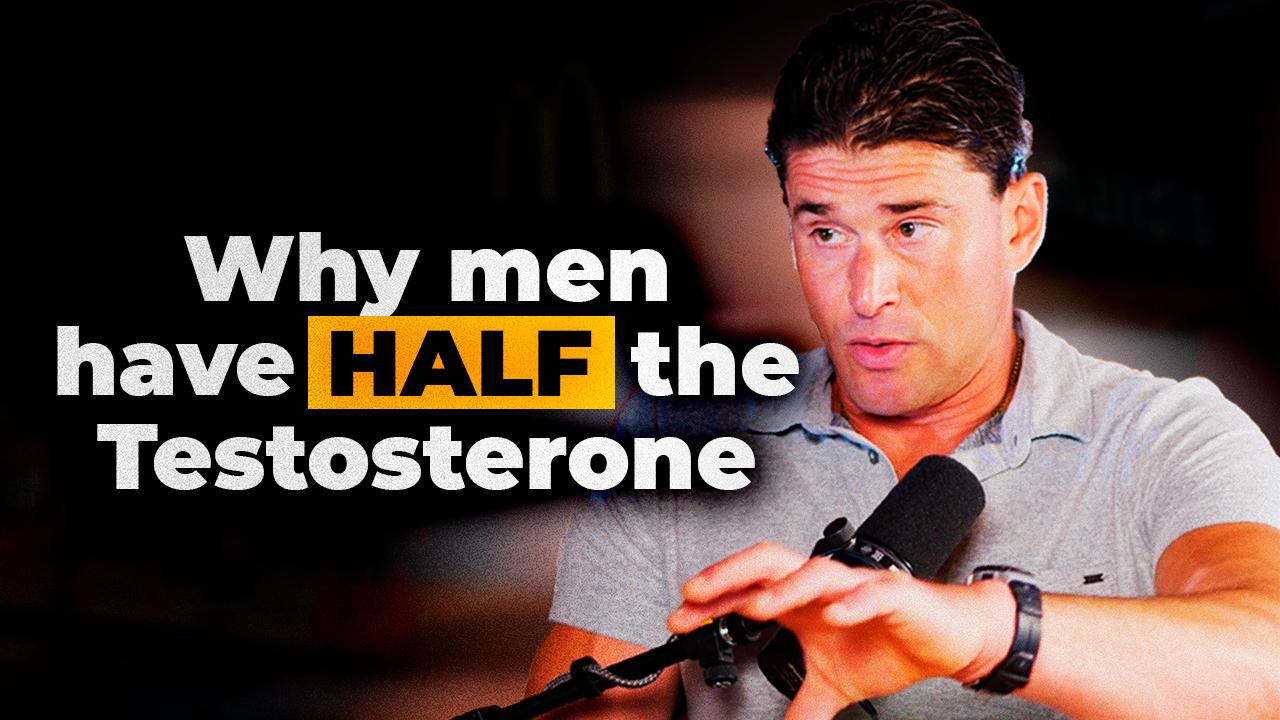 Why Men's Testosterone Is Half Their Grandfather's with Ben Greenfield
Why Men's Testosterone Is Half Their Grandfather's with Ben Greenfield -
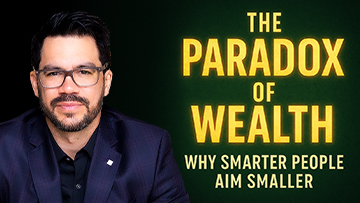 The Paradox of Wealth: Why Smarter People Aim Smaller
The Paradox of Wealth: Why Smarter People Aim Smaller -
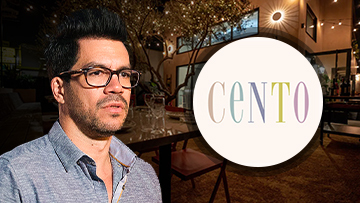 Mamma Mia in West Adams: Tai Lopez Finds LA's Pasta Holy Grail at Cento Pasta Bar
Mamma Mia in West Adams: Tai Lopez Finds LA's Pasta Holy Grail at Cento Pasta Bar -
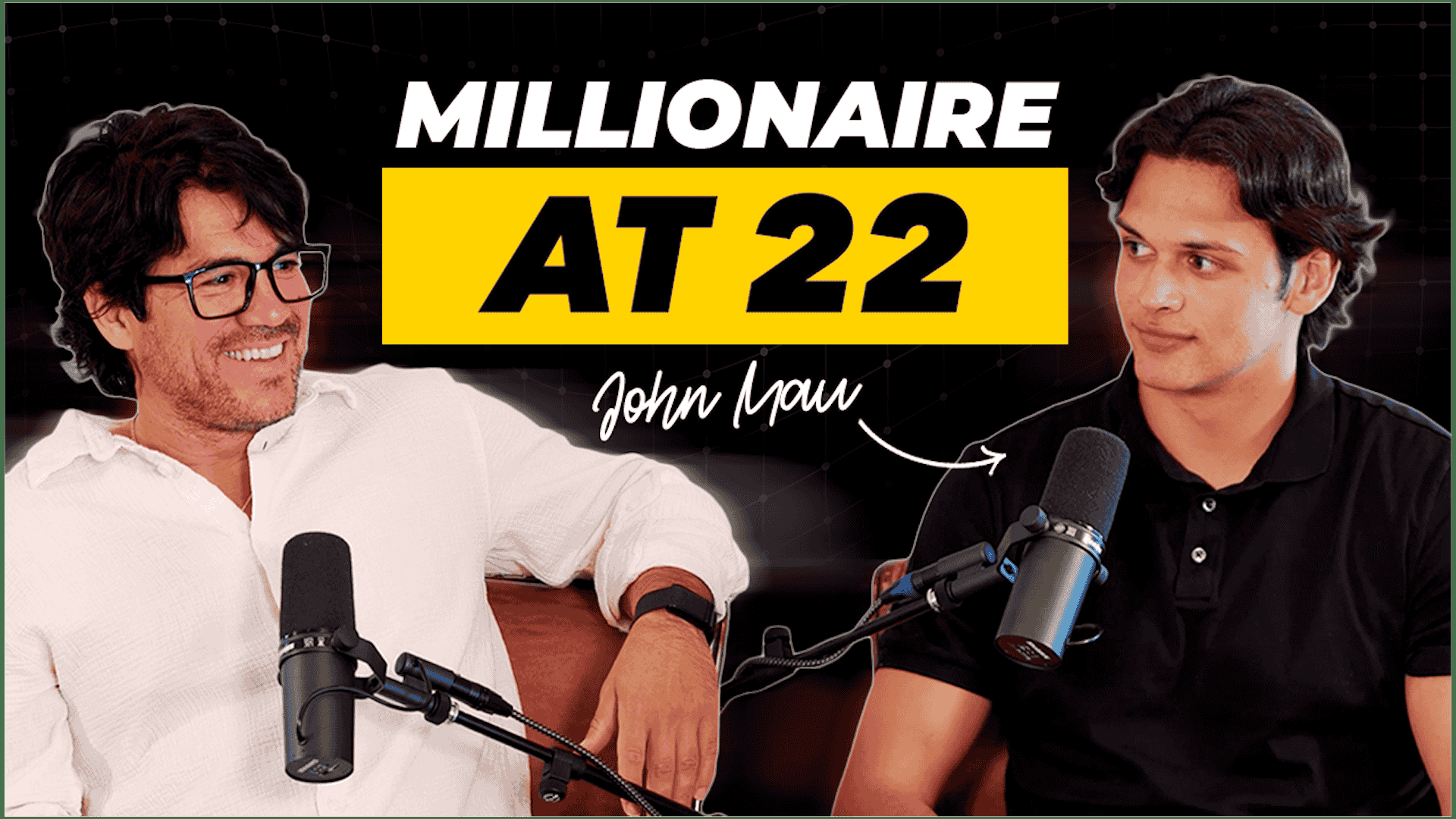 Sales Training, Scaling, and Breaking Objections: Tai Lopez with Johnny Mau
Sales Training, Scaling, and Breaking Objections: Tai Lopez with Johnny Mau

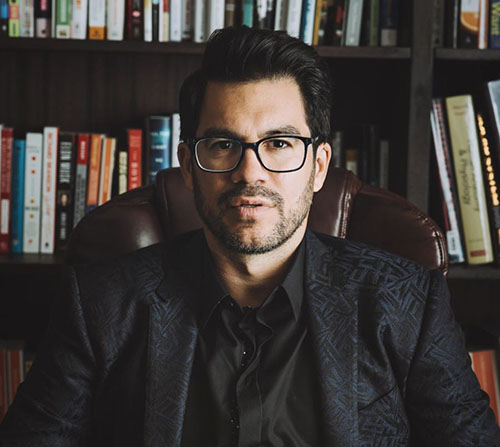
0 Comments